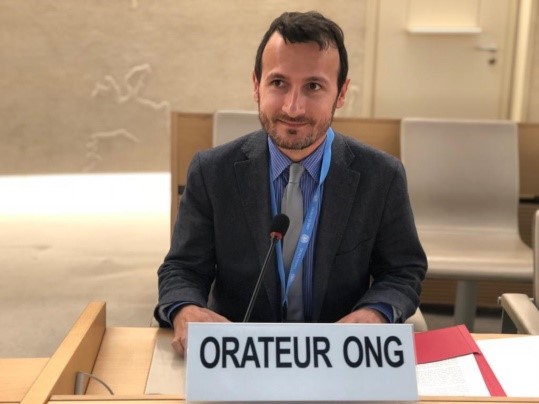On the first day of the 42nd Human Rights Council Session, Americans for Democracy & Human Rights in Bahrain (ADHRB) delivered an oral intervention drawing attention to the use of mercenaries in the Yemeni conflict. It discussed UAE’s use of such groups to divide Yemeni society and to deny them their right to self-determination.
Click here for a PDF of the submitted statement.
Please find the statement below.
—
Mr. Rapporteur,
We thank you for your report and we would like to draw your attention to the use of mercenaries by various parties to the conflict in Yemen, in particular the United Arab Emirates and Saudi-led coalition.
We are especially concerned about the employment of mercenaries in Yemen’s south. There have been reports that the UAE has hired mercenaries, including to assassinate prominent Yemeni individuals. This program, including efforts by UAE-backed militias in the south fighting against the government, appear to be part of efforts to fracture the State of Yemen. These efforts contravene Yemenis’ right to self-determination and threaten to add an additional dimension to the already complex conflict.
The use of mercenaries and foreign fighters also blurs the lines between state and non-state action, complicating efforts by the international community and the UN to broker a peace agreement and efforts to hold human rights violators accountable for their abuses. While regular forces under direct and clear state control are subjected to the laws of the state and thus the laws of war, mercenaries operate in a grayer zone, making it harder to ensure accountability.
Indeed, while the UAE has said that it is withdrawing its forces from Yemen and handing security control over to the militias that it has trained, these bodies, militias and mercenaries, have only continued to perpetrate violations. Prior to the UAE’s drawdown of forces, these forces controlled a network of prisons across Yemen’s south where they were implicated in systematic torture and abuse, including sexual torture.
Mr. Rapporteur, we are deeply concerned with the privatization of the conflict in Yemen and the difficulties this presents for accountability. What recommendations can you offer to help address this situation?
Thank you





